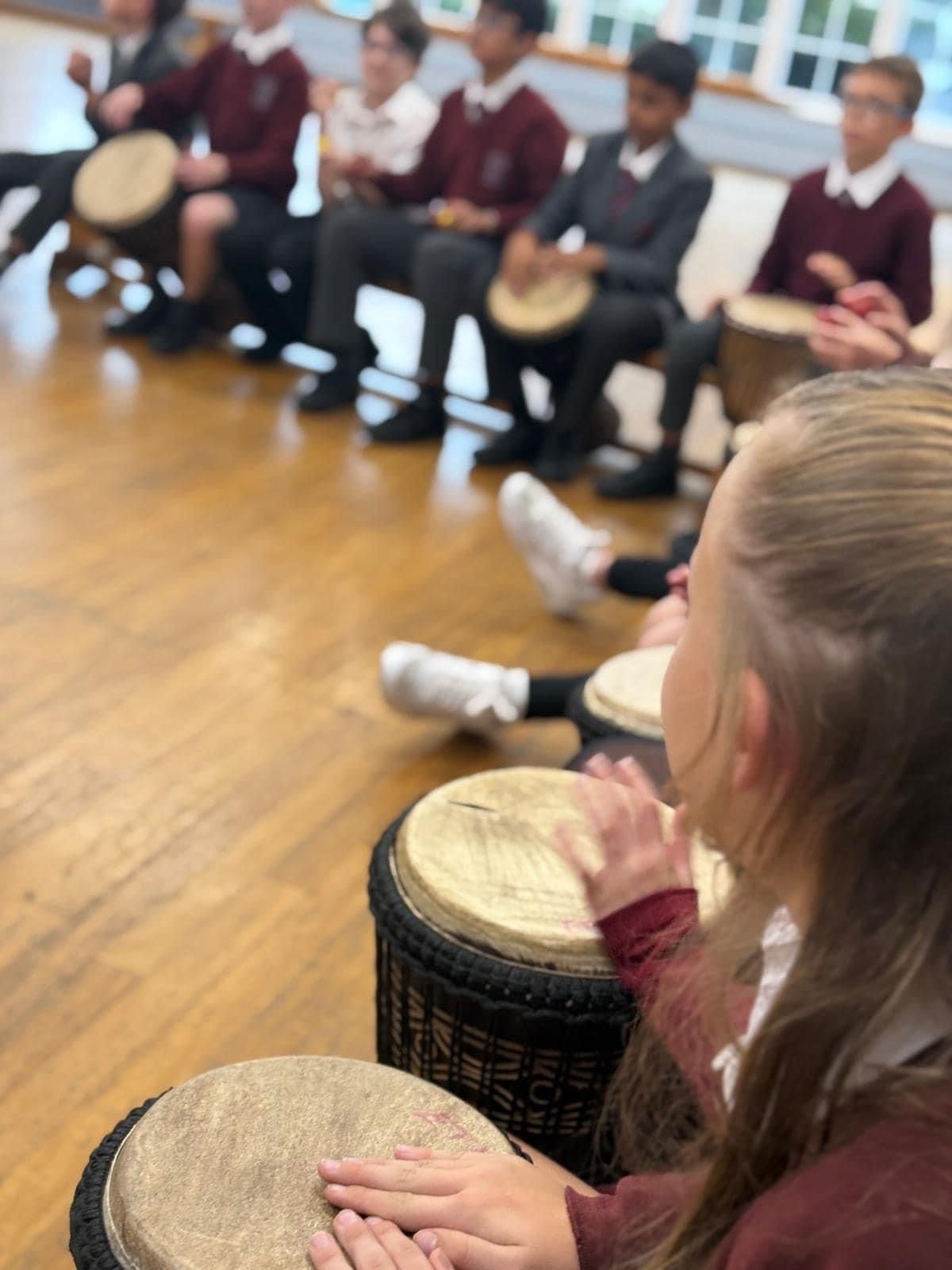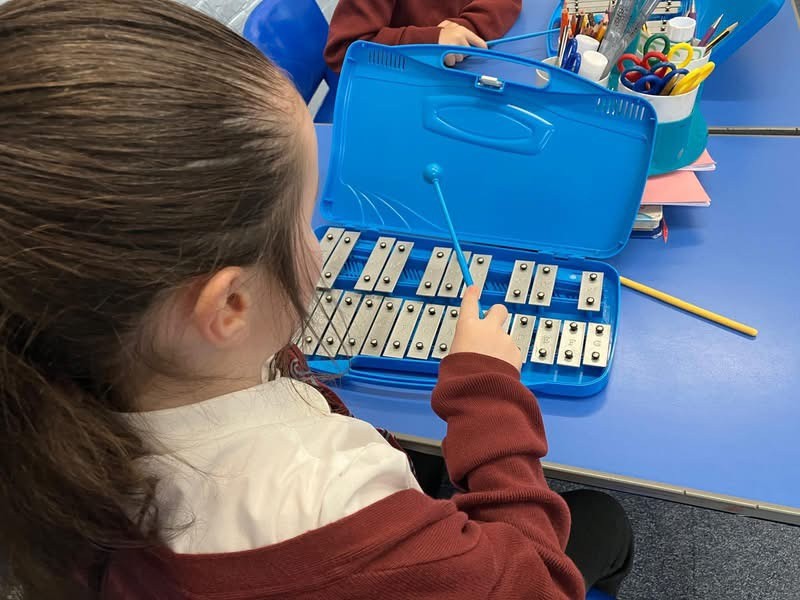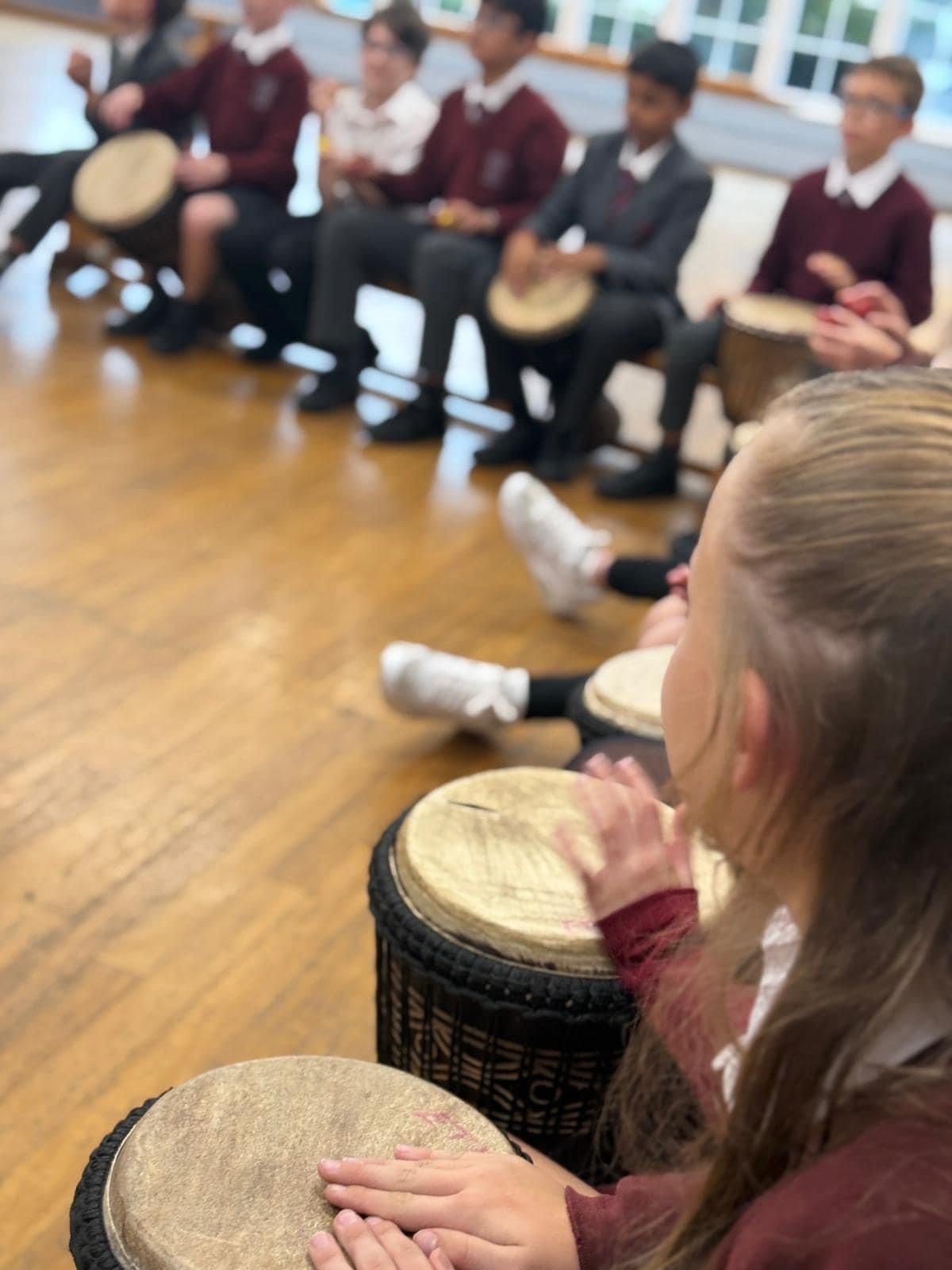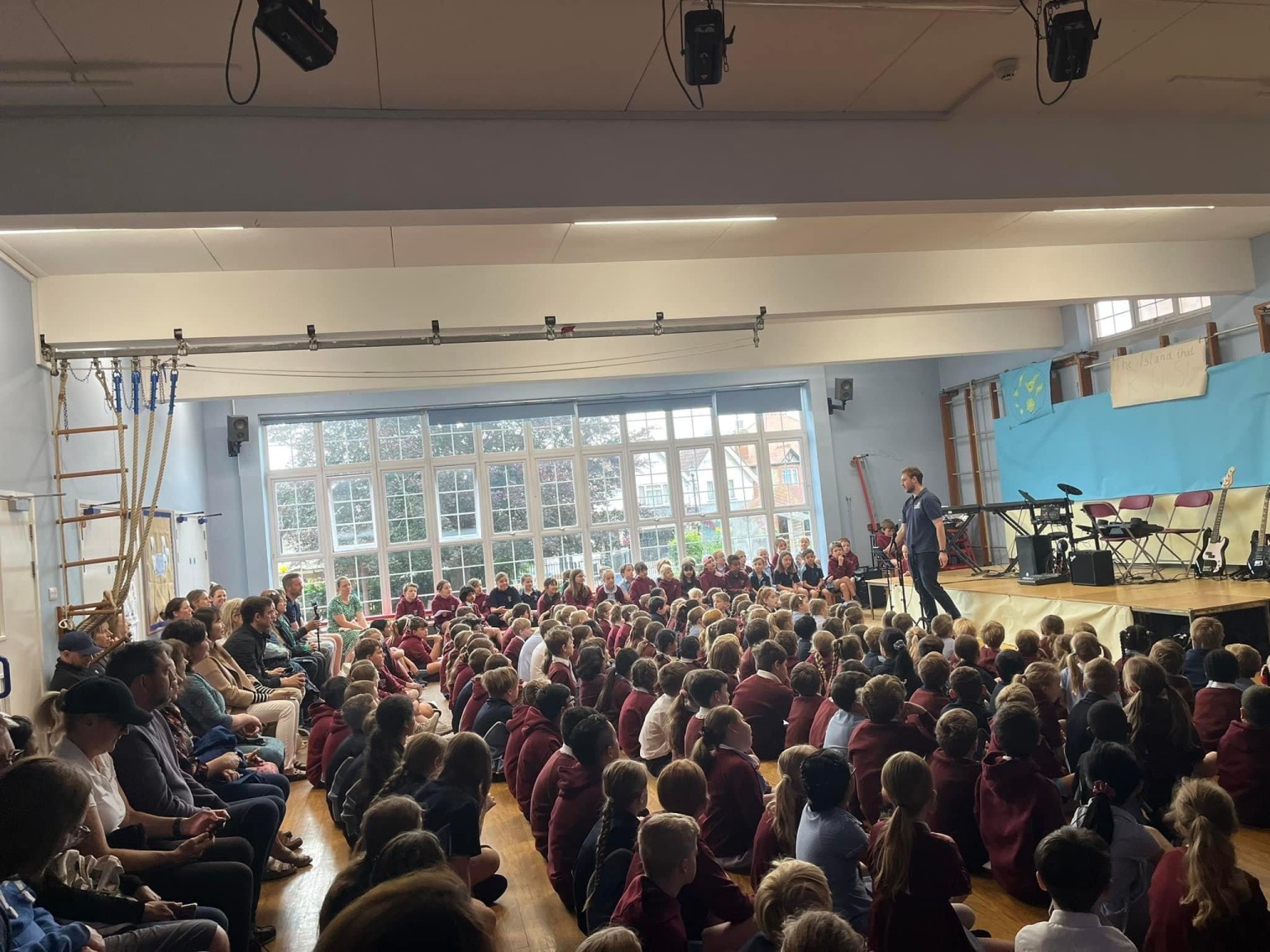Intent
At St Michael’s, the intent of our music scheme is first and foremost to help children to feel that they are musical, and to develop a life-long love of music. We know that music is a unique and powerful form of communication that can change the way people feel, think and act. It combines creativity with emotion, enabling personal expression, reflection and development.
We focus on developing the skills, knowledge and understanding that children need in order to become confident performers, composers, and listeners. Our curriculum introduces children to music from all around the world and across generations, teaching children to respect and appreciate the music of all traditions and communities. Children will develop the musical skills of singing, playing tuned and untuned instruments, improvising and composing music, and listening and responding to music. They will develop an understanding of the history and cultural context of the music that they listen to and learn how music can be written down. Through music, our curriculum helps children develop transferable skills such as team-working, leadership, creative thinking, problem-solving, decision-making, and presentation and performance skills. These skills are vital to children’s development as learners and have a wider application in their general lives outside and beyond school. We use the Kapow scheme of work which enables pupils to meet the end of Key Stage attainment targets outlined in the National Curriculum and the aims of the scheme align with those in the National Curriculum.
The National Curriculum for music aims to ensure that all children:
• perform, listen to, review and evaluate music
• are taught to sing, create and compose music
• understand and explore how music is created, produced, and communicated
Implementation
Music at St Michael’s is taught by class teachers using the Kapow curriculum to ensure progression of skills throughout each year group. In some years, children are also given the opportunity to learn an instrument such as the recorder.
Kapow Primary’s Music scheme takes a holistic approach to music, in which the individual strands below are woven together to create engaging and enriching learning experiences:
· Listening and evaluating
· Creating sound
· Notation
· Improvising and composing
· Performing
Each five-lesson unit combines these strands within a cross-curricular topic designed to capture pupils’ imagination and encourage them to explore music enthusiastically. Over the course of the scheme, children will be taught how to sing fluently and expressively, and play tuned and untuned instruments accurately and with control. They will learn to recognise, demonstrate and name the interrelated dimensions of music - pitch, duration, tempo, timbre, structure, texture and dynamics - and use these expressively in their own improvisations and compositions.
The Kapow Primary scheme follows the spiral curriculum model where previous skills and knowledge are returned to and built upon. Children progress in terms of tackling more complex tasks and doing more simple tasks better, as well as developing understanding and knowledge of the history of music, staff, and other musical notations, the interrelated dimensions of music and more.
In each lesson, pupils will actively participate in musical activities drawn from a range of styles and traditions, developing their musical skills and their understanding of how music works. Lessons incorporate a range of teaching strategies from independent tasks, paired and group work as well as improvisation and teacher-led performances. Lessons are ‘hands-on’ and incorporate movement and dance elements, as well as making cross curricular links with other areas of learning.
Teacher videos are available on Kapow to support subject knowledge and enable staff to deliver high quality lessons.
During their early years the children will encounter a curriculum rich in opportunities to explore music, following the guidance in the Early Years Foundation Stage document. Children will be encouraged to listen to music and focus on how sounds can create feelings and ideas, as well as responding to musical stimuli though dance and movements. In addition, children will also create musical sounds of their own, though playing with musical instruments with increasing control and success.
In addition to our music curriculum, we enrich our music provision with opportunities for singing and instrumental workshops.
Impact
By the end of their time at St Michael’s, we aim for children to be equipped with a range of skills to enable them to succeed in their secondary education and to be able to appreciate music throughout their lives. We expect children to:
· Be confident performers, composers and listeners and be able to express themselves musically
· Show an appreciation and respect for a wide range of musical styles from around the world, and to understand how music is influenced by the wider cultural, social and historical contexts in which it is developed
· Understand the various ways in which music can be written down to support performing and composing activities
· Demonstrate and articulate an enthusiasm for music and be able to identify their own personal musical preferences.
· Children should also meet the end of key stage expectations in the National curriculum.
We also hope that many will continue to learn musical instruments for their personal enjoyment.
We monitor the impact of music through:
· Constant formative assessment during lessons.
· Assessing children’s performances at the end of a unit.
· Speaking with the pupils about their learning and enjoyment of music
· Learning walks
· Summative assessment judgements will be recorded on OTrack at the end of the Summer Term




